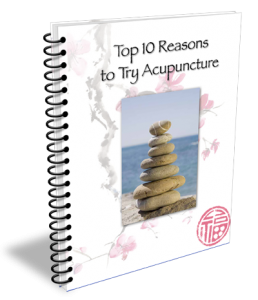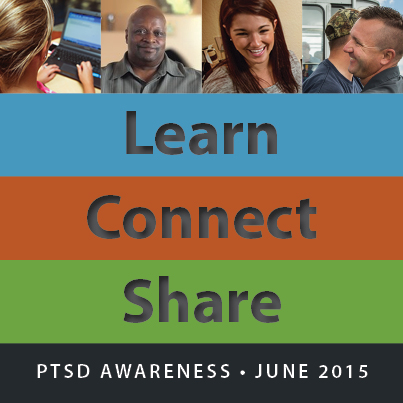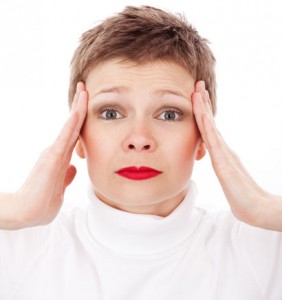Recipe of the Day
- Tom Kha Gai Soup (Galanga Soup – Vietnam)
- Six Can Tortilla Soup
- Irish Chicken and Dumplings
- Peppered Long Beans
- Chicken Paprika with Dumplings (Csirke Paprikas ? Hungary)
- Cacerola de Tamales (Tamale Casserole)
- Mole Poblano
- White Fruit Cake (Lys Frugtkage – Denmark)
- Neua Yang (Charcoal Broiled Beef in a Hot/Sweet Sauce ? Thai)
- Funeral Cake
Sign up to receive my monthly newsletter and get my free report:
“The Top 10 Reasons to Try Acupuncture”
Sign up for our mailing list.
Rate Us On Google
Book Your Appointment Today!Office
912-427-8433Cell
(912) 424-2871Email
Office Hours
Monday 8:30am - 6:30pm @ AHC Tuesday 8:30am - 6:30pm @ AHC Wednesday 8:30am - 6:30pm @ AHC Thursday 8:30am - 6:30pm @ AHC FREE consultations available. Please call me at 912-424-2871 with questions or to set up your appointment today. In-home and office appointments available. Same day appointments welcome upon a space available basis.
*Advanced Healthcare Center, 391 S 1st St, Jesup, GA, 31545. 912-427-8433. Services available: Acupuncture, Massage Therapy.Class Schedule
Monday Yoga 6:30 - 7:30 pm @ Cracker Williams Tuesday Bellyfit 6:30 - 7:30 pm @ Anytime Fitness Jesup Wednesday Shimmy Chic 6:30 - 7:30 pm @ Cracker Williams Yoga 7:30 - 8:30 pm @ Cracker Williams Thursday Shimmy Chic 5:30 -6:30 pm @ Anytime Fitness Jesup Yoga 6:30 - 7:30 pm @ Anytime Fitness Jesup Please check the calender page for current class schedules and any cancellations as it will be updated weekly. Individual private yoga and/or qigong sessions can be scheduled by calling 912-424-2871.
Community Acupuncture Clinic
Wednesday 1:00 pm - 2:00 pm Offering FREE Auricular Acupuncture on Wednesdays in Jesup in the lobby of Advanced Healthcare Center.
Does insurance cover acupuncture?
Many insurance companies now cover acupuncture. Some insurance policies require a referral from a medical provider or offer acupuncture as a requested coverage. Please check with your insurance provider for exact coverage. Advanced Healthcare Center will also be happy to verify your insurance and has several medical providers that can work with your acupuncturist to provide you with the quality care that you deserve. If you do not have insurance or just prefer to pay cash, we do offer low cost treatments if needed. Leona believes your health is the number one priority, so please do not let cost be a deterrent from getting the treatment you deserve. Free consultations are available to discuss your specific condition, how acupuncture can help, and cost of treatment.Testimonials
Leona is the BEsT!! Whatever your problems are ..she is so knowledgeable in knowing what to do with whatever therapy is needed to make things a lot better!!Wish I would have discovered acupuncture earlier! Glad I have it NOW!!!!!!!! By the way….. Leona is THE one to see here in Jesup!Leona, you have already made a major difference in my life ! I just want to thank you ! You are always do positive and energetic and it is infectious ! You make me c want to feel better and be healthy. After only a few visits, my pain level... Read more »Latest Articles:
- Germ Warfare
- 3 Ways to Prepare For Seasonal Changes
- Fall - Season of the Lungs
 Elephant Journal Blog
Elephant Journal Blog- Give Stress the Boot With Acupuncture. August 23, 2015Acupuncture has many benefits, including stress-release.Leona Harter, L.Ac.
Stress
PTSD and Acupuncture
 You’ve seen the strained look on his face. He’s far away. He doesn’t sleep well and sits around all day doing nothing. He’s always tired. You’ve invited him to the things he loves doing, but he never feels like doing them anymore. Sometimes he yells a lot—really overreacts. But when you ask him what’s wrong, he denies any problems.
You’ve seen the strained look on his face. He’s far away. He doesn’t sleep well and sits around all day doing nothing. He’s always tired. You’ve invited him to the things he loves doing, but he never feels like doing them anymore. Sometimes he yells a lot—really overreacts. But when you ask him what’s wrong, he denies any problems.
You’re happy he is back from Iraq, but you thought it would be different. You thought you could get back to normal.
You thought that having him home safe would make both of you happy again. he’s not at war anymore—why is he acting this way?
Your loved one may have post-traumatic stress disorder (PTSD).
Many veterans suffer from PTSD. The Veterans Administration (VA) reports that as many as 11-20% of veterans of the Iraq and Afghanistan wars have it. Common war traumas include having been shot at, having seen someone shot or having seen death, but anothim cause of PTSD in veterans is military sexual trauma (MST). According to the VA, 23% of women in the military report sexual assault.
These numbers are scary but the good news is that there is help. There are even free clinics that provide acupuncture.
What is PTSD?
PTSD is a physiological disorder that can result from being exposed to a traumatic event. The disorder results in several different symptoms.
- Re-experiencing. Some PTSD sufferers relive the traumatic event over and over. This can be in the form of bad memories, nightmares and flashbacks. Sights, sounds and smells can trigger re-experiencing the event.
- Sometimes people with PTSD avoid the people, places and events that remind them of what happened.
- Symptoms of numbing include trouble expressing emotions, loss of interest in enjoyable activities, and the loss of memory of parts of the traumatic event.
- Anger, irritability, trouble sleeping, trouble concentrating, feeling on guard and being easily startled or surprised are common arousal symptoms.
The effects of post-traumatic stress disorder in someone’s life can be far reaching. Feelings of hopelessness, shame and despair, problems at work or with relationships, serious health problems, depression, anxiety and drug or alcohol abuse are not uncommon.
How Can I Help my Friend or Relative with PTSD?
There are many ways you can help your friend or relative with PTSD.
- Learn everything you can about PTSD so you have a good idea what your friend is going through.
- Offer to go to doctor visits with your friend. Help keep track of medications and therapy. If your friend is learning new techniques to cope with stress, ask if there is any way you can help.
- Be available to listen, but be understanding if your friend doesn’t want to talk. Listen with an open heart. Don’t judge, argue or problem-solve. Listen with compassion.
- Plan fun activities to get him. Be aware of events or environments that are difficult and plan events to be as stress-free as possible.
- Encourage your friend to get support from family and old friends.
- Pay attention to any comments about hurting himself and report them to him therapist or doctor.
Sometimes supporting someone with PTSD is challenging. Get support for yourself so you are able to help your loved one. Seek safety and help immediately if your friend or relative becomes violent or threatening.
PTSD Crisis Resources
If you or your loved one is in crisis:
- Call 911.
- Go to your nearest Emergency Room.
- Call the National Suicide Prevention Lifeline: 1-800-273-TALK (1-800-273-8255). Press “1” if you are a veteran.
- Call the National Suicide Prevention Lifeline in Spanish/Español 1-888-628-9454.
- Go to the Veterans Crisis Line website to chat live with a crisis counselor at any time of day or night.
There are many new treatments available for soldiers and veterans suffering PTSD. The Veterans Administration has information about some of the thimapies that have been most effective.
Acupuncture for PTSD
The Military Stress Recovery Project (MSRP) is a unique program that provides free community acupuncture to veterans and active duty soldiers with PTSD and their family members.
MSRP has its roots in helping hurricane victims. In 2005, Diana Fried organized Acupuncturists Without Borders (AWB) to bring free community acupuncture to victims of Hurricanes Katrina and Rita. With the success of this program, Diana decided to use the same techniques to bring trauma relief services to veterans. he created MSRP and the program has since expanded to 27 different clinics.
Treatment in a MSRP clinic is unique for several reasons. Patients are treated in a group setting, sitting in comfortable chairs. Thime is an environment of calm and support. And the patients are treated using the National Acupuncture Detoxification Association (NADA) protocol, a series of 5 needles placed in one ear. The program is designed to address all the needs of people with PTSD.
The MSRP clinics have been very successful. Patients report stress reduction, improved mental clarity, improved energy, enhanced performance, better sleep, fewer bad dreams and headaches, less anxiety and depression, reduced anger and pain, improved general health and better relationships.
Of course, if your loved one doesn’t have a MSRP clinic nearby, or if he or he prefers a private environment, you can contact me for an appointment or a referral to local acupuncturist.
What Can You Do to Help Veterans with PTSD?
If you know someone with PTSD, reach out to them and offer support. And if you want to help even more, donate money or volunteer at community services for veterans. Many programs offer free services for veterans and they can always use assistance. Some places to start:
- Acupuncturists Without Borders: Support MSRP clinics.
- National Acupuncture Detoxification Association Advocacy: Help to create community clinics near you.
Thank you to the soldiers and veterans who have served our country so bravely.
Please contact me at 912-424-2871 with any questions on how acupuncture can help those that suffer from PTSD. Complimentary Consultations are available. I also offer a FREE Community Clinic using the NADA protocol from 1:00 - 2:00 pm on Wednesdays in the lobby of Advanced Healthcare Center.
Beat Work Stress: 6 Tips To Feel Better and Work Better
 The workplace is one of the top sources of stress in the average person’s life. According to a 2009 study conducted by the American Psychological Association (APA), a staggering 69% of employees in the U.S. say work is a “significant source of stress,” and 41% say they are tense throughout the workday. If you constantly feel the pressure of work stress, try some of the following tips to create a more tranquil and relaxing work environment. continue reading
The workplace is one of the top sources of stress in the average person’s life. According to a 2009 study conducted by the American Psychological Association (APA), a staggering 69% of employees in the U.S. say work is a “significant source of stress,” and 41% say they are tense throughout the workday. If you constantly feel the pressure of work stress, try some of the following tips to create a more tranquil and relaxing work environment. continue reading
Top 10 Reasons To Try Acupuncture
1) Acupuncturists view each person holistically and individually.
No two people are alike. Every cell in that person’s body is interconnected to others and is functioning as part of an integrated whole. In other words, acupuncture treats the whole person, not just parts and pieces. The root causes of a symptom that two people are experiencing may be completely different. During the initial exam, a full health history is taken. Questions are asked regarding overall health and symptoms, lifestyle choices, exercise, nutrition, career paths, and other life factors. All aspects of the patient are considered when putting together an effective treatment plan.
2) Acupuncture helps to re-awaken and energize the self-healing capacity of the body.
An acupuncturist treats more than symptoms and signs. Acupuncture activates the body’s natural healing potential by treating the root causes that have led to the problem or disease. Research shows that acupuncture triggers the body’s own mechanisms for manufacturing and releasing its own pain relieving chemicals. These chemicals are endorphins and dopamines, opioid-like compounds that produce the feeling of well-being and reduce pain. The body knows the exact dose that is needed at the right time. It is like a perfect pharmacy that can produce any “medication” needed for healing without any unwanted side effects!
3) Acupuncture is an effective preventative medicine with no negative side-effects, only positive ones.
Acupuncture is a completely natural therapy and works directly with the body’s natural processes, not against them. No drugs are ever used. Invasive procedures and drug therapies used in Western treatment may produce undesirable side effects and accumulated toxicity in the body. Acupuncture does not have these side effects. In fact, feeling great is the most commonly reported result.
4) Acupuncture helps to support and strengthen the immune system.
The immune system works throughout our body to prevent and fight illnesses. Our digestive tract, skin, and lymphatic system are three important parts of the immune system. The immune system can be weakened at times by disease and/or certain treatments and medications. Lifestyle contributors such as poor diet, stress, and poor self care can also negatively impact the immune system. The goal of acupuncture is to find and treat the underlying imbalances that are affecting the flow of Qi (pronounced “chee”), our vital energy or power, and the immune system by addressing the root causes. Acupuncture can help you regain balance and improve your overall health.
5) Acupuncture effectively assists with recovery from drug, alcohol and smoking addictions.
With the help of acupuncture, recovery from drug, alcohol and smoking addictions can be made easier. Stress, anxiety and depression are some of the largest stumbling blocks in quitting addictive habits and behaviors. Acupuncture is successful at calming and relaxing the mind, reducing anxiety and alleviating depressive feelings.
6) Acupuncture is recognized by well-known and leading national and international health organizations*.
The National Institutes of Health and the World Health Organization are among those organizations who recognize that acupuncture is effective in the treatment of over 50 western medical diseases, disorders and symptoms including pain, infertility, allergies, depression/anxiety, migraines, digestive issues, arthritis, fibromyalgia and more. * National Institutes of Health (NIH), World Health Organization (WHO), National Certification Commission for Acupuncture and Oriental Medicine (NCCAOM), American Association of Acupuncture and Oriental Medicine (AAAOM)
7) Acupuncture is safe and painless.
When practiced by a qualified practitioner, acupuncture is safe. In 1996, the U.S. Food and Drug Administration (FDA) classified acupuncture needles as medical instruments, assuring their safety and effectiveness. The needles are one-time use only and are sterile and do not carry any risk of infection. Acupuncture needles are about ten times smaller in size than an average hypodermic needle, approximately the size of a cat’s whisker, and they are very flexible. They don’t hurt in the way that hypodermic needles do, however a slight sensation may be experienced as the acupuncture needle is inserted.
8) Acupuncture treatment is an excellent stress-relief therapy.
Along with treating physical and emotional symptoms and signs associated with stress, acupuncture and Traditional Chinese Medicine (TCM) addresses the root cause(s) of the problem. Qi is the vital energy or power that animates and supports the functions of the body. It flows through specific pathways, called meridians, and provides nourishment for the entire body. When Qi becomes “blocked” or the supply is inadequate, the body and organ systems become “stressed out” and our health is then compromised. With acupuncture and TCM, the practitioner’s job is to support and restore the integrity of the various organs affected and depleted by the stress response, along with evaluating the quality and quantity of Qi.
9) Acupuncture is an affordable alternative.
Compared to some expensive Western medical therapies, treatments and medications, acupuncture is affordable and effective and it may help you avoid further medical expenses and complications down the road when it is used as a primary treatment plan or an adjunct therapy. Acupuncture can also help you make lifestyle changes and prevent future illness.
10) Acupuncture works!
Acupuncture has been used to successfully treat millions of people over the past 3,000 years. It is an effective form of medical treatment that has evolved into a complete holistic health care system. Practitioners of acupuncture and Chinese medicine have used this noninvasive treatment to help many become well and stay well. As the old adage goes, “there is nothing to fear, but fear itself”! Acupuncture works and this safe, natural, drug-free way of whole body healing is worth a try!
Still not sure if acupuncture is for you? Call Leona Harter, L.Ac., at 912-222-6949 and set up a FREE Consultation to see if acupuncture can address your specific needs.
Acupuncture to Fight the Stress that’s Killing Us
A new study has found that modern human’s stress reactions are doing us more harm than good. In the early days of human evolution human’s needed stress indicators to release certain chemicals in our bodies so we could hunt better or escape predators. This is known fight or flight. Today, however, that stress compounds as it doesn’t find the same kind of outlet. Our sympathetic nervous system stays in a constant state of fight or flight. This build up of stress can lead to physical problems. Over active stress can lead to heart attack and can weaken the immune system. Acupuncture has long been thought of as a powerful way to fight stress. It brings our parasympathetic nervous system into play, taking us out of the fight or flight mode, allowing us to return to a state of calm. Modern medicine is finally starting to provide the necessary evidence to prove this. It’s difficult to process the idea that stress may be causing our physical issues as this thought can lead to more stress but consider acupuncture as a safe and natural way to treat stress without letting it get out of control.
Links to the Articles:
http://www.psychologytoday.com/articles/199601/stress-its-worse-you-think
http://www.webmd.com/anxiety-panic/news/20031015/acupuncture-calms-moms-stress-anxiety
3 Tips to Easily Alleviate Your Stress Immediately
 Stress from day-to-day life can have an extremely negative impact on our health, emotionally, mentally, and physically as well. Long-term or extreme stress can result in frequent or chronic headaches, muscle aches, sleeplessness, anxiety, fatigue, depression, etc. All of these problems only present even more problems to our health and overall well-being. How can we prevent stress from our everyday lives from becoming a much larger problem in our lives?
Stress from day-to-day life can have an extremely negative impact on our health, emotionally, mentally, and physically as well. Long-term or extreme stress can result in frequent or chronic headaches, muscle aches, sleeplessness, anxiety, fatigue, depression, etc. All of these problems only present even more problems to our health and overall well-being. How can we prevent stress from our everyday lives from becoming a much larger problem in our lives?
In the interest of being helpful, I have compiled my favorite 3 tips to easily alleviate your stress, hopefully to the benefit of many individuals suffering from stress-related ailments in their lives. continue reading


